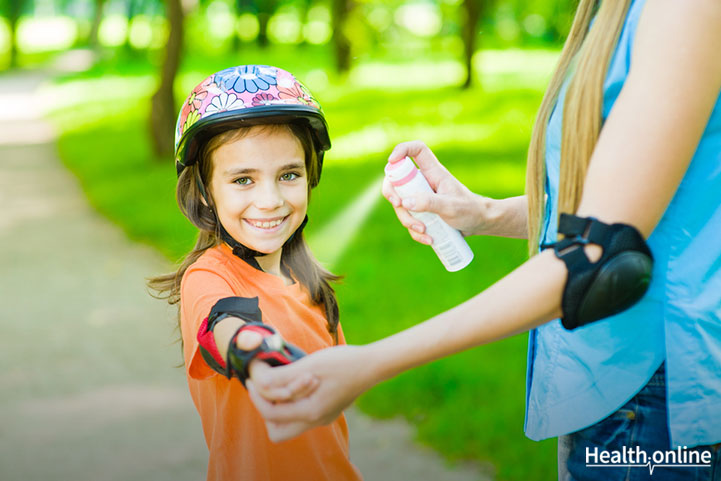
Guard Against Insect Bites While Traveling
Planning a trip? Got insurance for yourself and your luggage? Checked the itinerary? Read reviews about your destination and/or discussed it with friends and family?
Ready to go and have fun?
Think twice before replying ‘Yes’ to that. For the truth is, that while you may think that you are ready, you have in fact missed out on a very subtle detail that, if neglected, might ruin your entire trip.
We’re talking about insect bites during travel.
Insect bites are a very real problem while traveling. If you’re unprepared to deal with them, they can be a real blight on your travel experience. That’s why it’s important for you to read on – to learn about how you can effectively deal with insect bites before you head out on your trip.
Why do I need protection from insect bites?
Mosquitoes spread some of the dangerous epidemics, such as Zika, chikungunya, and dengue. If you become infected with a disease or become a carrier for it, you can even spread it among the entire community, once you return from your trip. This is the reason why immigration demands certain types of vaccinations against specific diseases.
Without further ado, read on to learn how to protect yourself from insect bites.
What do you need to do before your trip?
- Know where you are going: You should be well informed about the place where you are visiting. There will be diseases that are endemic to that location. Do some reading on the Internet, and check out if there are any country specific risks for health. Usually, such information is given as recommendations online.
- Talk to your physician: Your doctor can inform you about precautions you need to take before traveling, with regards to avoiding insect bites or in general, better than anyone else.
- Get your travel health kit: The Environmental Protection Agency (EPA) has a list registered repellents that you must carry with you on your trip. Here is a list of compounds approved by the EPA: IR3535, oil of lemon eucalyptus, picaridin, DEET, para-menthane-diol, or 2-undecanoate [862 KB].
- Check out the reviews: Look for reviews on the internet regarding the place you are visiting, the hotel where you are spending your nights etc. This will provide you with a basic idea of what to expect on the trip, and how to be prepared for the same.
What do you need to do while on your trip?
- Some of the deadly diseases caused by mosquito bites happen during the day. So make sure that you are always protected.
- Cover yourself up as much as possible, by wearing long-sleeved clothes, long pants, mufflers, etc. This will reduce the chances of being bitten down to the minimum.
- Stay in places that have closed windows, good air conditioning, screens on doors and windows. All this will help keep the mosquitoes away.
- Sleep inside mosquito nets. Mosquito nets will keep you free from mosquito bites.
Guidelines to use insect repellent
- Use EPA registered insect repellents, as they have a proven record of safety and effectiveness. The EPA approved repellents are safe even for lactating and pregnant women.
- Follow the instructions given on the label.
- Use insect repellents only in the manner prescribed.-
- When using spray repellents, don’t spray on the skin under the clothing.-
- When going out during the day, never forget the insect repellent. If it’s sunny outside, apply sunscreen before the repellent.
How to protect your kids from insects?
Protecting your children from insects is different from protecting yourself. Here are few things to consider if you are taking your kid along:
- Never use insect repellents on babies less than two months old.
- If your child is less than 3 years old, don’t use repellents that contain OEL (Oil of lemon eucalyptus) or PMD (para-menthane-diol).
- Cover your kid fully including head, legs, and hands.
- If your child is in a crib or stroller or baby carrier, cover the crib/stroller/carrier with netting.
- Never apply your repellents on the hands, eyes, irritated skin or mouth. Sometimes kids tend to keep their hands in the mouth
- Don’t spray repellents directly on your kid. Rather, spray it on your hands and then apply it on your kid.
Some additional tips:
- Use permethrin-treated products or treat your products with permethrin.
- Follow product instructions carefully.
- Remember not to use permethrin on your skin directly.Always bear in mind that the protection offered by these products has a limited
- Use permethrin-treated products or treat your products with permethrin.
- Follow product instructions carefully.
- Remember not to use permethrin on your skin directly.Always bear in mind that the protection offered by these products has a limited time span. So be aware as to how long the protection will last after one use so that you know when to use it next.
If you follow the aforementioned pointers, you’ll find yourself enjoying a much safer and healthier trip.




